Sun Ra - Ellingtonia, Vol. 2 (2023) Hi-Res
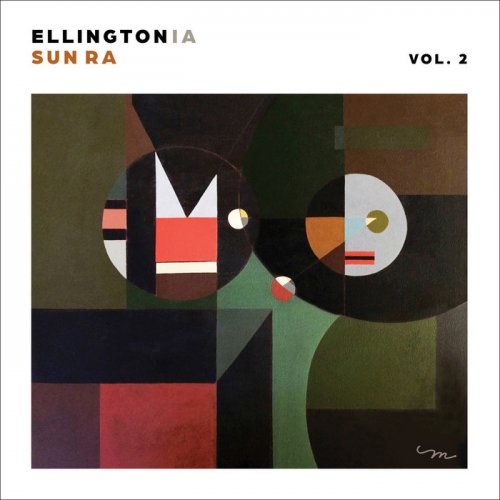
Artist: Sun Ra, The Sun Ra Arkestra, Sun Ra & His Arkestra
Title: Ellingtonia, Vol. 2
Year Of Release: 2023
Label: Enterplanetary Koncepts
Genre: Jazz, Avant-Garde, Big Band
Quality: 320 / FLAC (tracks) / FLAC (tracks) 24bit-96kHz
Total Time: 1:00:25
Total Size: 143 / 330 / 578 Mb
WebSite: Album Preview
Tracklist: Title: Ellingtonia, Vol. 2
Year Of Release: 2023
Label: Enterplanetary Koncepts
Genre: Jazz, Avant-Garde, Big Band
Quality: 320 / FLAC (tracks) / FLAC (tracks) 24bit-96kHz
Total Time: 1:00:25
Total Size: 143 / 330 / 578 Mb
WebSite: Album Preview
01. Flamingo (Chicago, 1950s) (1:47)
02. Flamingo (New York, 1978) (4:42)
03. Perdido (New York, 1987) (5:00)
04. Caravan (Pershing Ballroom, 1958) (2:10)
05. In My Solitude (Mannheim, 1982) (7:10)
06. In a Sentimental Mood (Sun Studio) (5:35)
07. Happy as the Day is Long (Austria, 1984) (3:20)
08. Sophisticated Lady (Chicago, 1951) (3:24)
09. Prelude to a Kiss (Bremen, 1986) (6:52)
10. Satin Doll (New York, 1987) (9:52)
11. Sun Ra - Take the 'A' Train (solo piano, 1977) (3:57)
12. Take the 'A' Train (vocal version, Santa Cruz, 1987) (6:31)
Here's a second volume of Sun Ra paying tribute to one of his favorite musical geniuses. And here's roughly the same annotation adapted from volume one, revised where appropriate.
Despite the fact that Sun Ra has over 1,000 titles copyrighted in his name, a good part of his concert and recorded repertoire consisted of works by other composers. He arranged—in his idiosyncratic way— tunes by Monk, Gershwin, Henderson (Fletcher and Horace), Jerome Kern, Irving Berlin, and countless others. But no one breezed into Sun Ra set lists more often than the "Duke"—Edward Kennedy Ellington.
Growing up in Birmingham, Alabama, Herman Poole "Sonny" Blount (born 1914) came of age in the 1930s, when big band "Swing" jazz was in vogue. When he later formed his Arkestra, Sonny drew on this legacy, though he re-shaped the big band format into something his own—a singular (afro-)futuristic reinvention that somehow echoed the music of his youth. Ra as an artist looked forward and backward. He relished innovation, but revered tradition. Paradoxically, the older he got—by the 1970s and '80s—the more Swing Era chestnuts he revived in his work. Despite the fact that many of his admired composers matured to create more advanced works after the 1930s—Ellington a perfect case in point—Ra’s taste remained rooted in the '30s. Of the ten titles on this collection, all but one date from 1932 to 1941. (The outlier is "Satin Doll," which debuted in 1953.)
John Szwed, writing in the biography, SPACE IS THE PLACE: THE LIVES AND TIMES OF SUN RA, offers an interesting Ellingtonian vignette. In his twenties, Sonny was listening to, studying, transcribing, and performing contemporary big band jazz with a passion. Yet, writes Szwed, "Swing music was by now easy for him, formulaic and predictable. But he had another book of arrangements which [his] band rehearsed but never performed and whose purpose he never explained. … The compositions and arrangements in this book were inspired by dreams or made up of ideas derived from reading 'Popular Mechanics,' pieces … built on complex and oddly shifting rhythm patterns."
Szwed continues: "When Duke Ellington was in town, Sonny took his book of arrangements backstage to show him. They talked for over an hour, Ellington gracious and regal in his black silk dressing gown. At one point the Duke pulled out his own arrangements. Sonny saw that Ellington also used dissonance in his writing, only it never seemed dissonant. Sonny was thrilled to see his own ideas confirmed."
This encore collection of Ellingtonia features material both previously released and unreleased. Some tracks originated with the Sun Ra Music Archive, maintained by Michael D. Anderson; others came from the Experimental Sound Studio (ESS), Chicago. A handful were derived from sources licit and illicit. As with any Sun Ra compilation, audio fidelity varies from the sublime to the near-ridiculous. However, as any Ra fan will attest, the fidelity is secondary to the excitement of the performance.
The collection opens with a lo-fi 1950s-era version of "Flamingo," on which Ra plays piano and Solovox simultaneously, with some percussion buried beneath the clatter. This short take segues into a magnificent 1978 studio recording of the same title with the full Arkestra. (This version originally appeared on the Sweet Earth LP The Other Side of the Sun.) Two tracks, "Perdido" and "Satin Doll," were apparently (rather well-)recorded by a ticketholder at a Bottom Line Arkestral tribute to the Duke in 1987. Extracted from a bootleg, these tracks have been sonically upgraded a tad. Two tracks were cheaply recorded in Chicago — "Caravan," from 1958, captured at the Pershing Ballroom, and "Sophisticated Lady," recorded at home in a 1951 duet with bassist Wilbur Ware. Three tracks were recorded live in Europe in the 1980s, and "In a Sentimental Mood" originated at a very informal home rehearsal, likely in the 1970s.
Finally, make of this what you will: Duke Ellington, born in 1899, passed away in 1974. Not a single Ellington title performed by Ra appears in the exhaustive discography The Earthly Recordings of Sun Ra, by Robert L. Campbell and Christopher Trent, before 1975. That book, published in 2000, covered all known (at the time) studio and live recordings by Ra (with or without the Arkestra). In '75, "Lightnin'" and "Sophisticated Lady" entered the repertoire, joined by "Take the 'A' Train" and "Slippery Horn" a year later. Other Ellington titles were added by Ra and encored throughout the 1980s. It is within the realm of fair speculation that after Duke's death, Ra embarked on a mission to preserve not just Ellington's legacy, but the legacies of a number of his musical heroes of the 1930s. Large traveling jazz orchestras had gone out of fashion by the 1950s. Sun Ra was one of the few who sustained—and advanced—the format for decades to come. After Ellington's passing, Sun Ra apparently saw the need to return frequently to the source.
Despite the fact that Sun Ra has over 1,000 titles copyrighted in his name, a good part of his concert and recorded repertoire consisted of works by other composers. He arranged—in his idiosyncratic way— tunes by Monk, Gershwin, Henderson (Fletcher and Horace), Jerome Kern, Irving Berlin, and countless others. But no one breezed into Sun Ra set lists more often than the "Duke"—Edward Kennedy Ellington.
Growing up in Birmingham, Alabama, Herman Poole "Sonny" Blount (born 1914) came of age in the 1930s, when big band "Swing" jazz was in vogue. When he later formed his Arkestra, Sonny drew on this legacy, though he re-shaped the big band format into something his own—a singular (afro-)futuristic reinvention that somehow echoed the music of his youth. Ra as an artist looked forward and backward. He relished innovation, but revered tradition. Paradoxically, the older he got—by the 1970s and '80s—the more Swing Era chestnuts he revived in his work. Despite the fact that many of his admired composers matured to create more advanced works after the 1930s—Ellington a perfect case in point—Ra’s taste remained rooted in the '30s. Of the ten titles on this collection, all but one date from 1932 to 1941. (The outlier is "Satin Doll," which debuted in 1953.)
John Szwed, writing in the biography, SPACE IS THE PLACE: THE LIVES AND TIMES OF SUN RA, offers an interesting Ellingtonian vignette. In his twenties, Sonny was listening to, studying, transcribing, and performing contemporary big band jazz with a passion. Yet, writes Szwed, "Swing music was by now easy for him, formulaic and predictable. But he had another book of arrangements which [his] band rehearsed but never performed and whose purpose he never explained. … The compositions and arrangements in this book were inspired by dreams or made up of ideas derived from reading 'Popular Mechanics,' pieces … built on complex and oddly shifting rhythm patterns."
Szwed continues: "When Duke Ellington was in town, Sonny took his book of arrangements backstage to show him. They talked for over an hour, Ellington gracious and regal in his black silk dressing gown. At one point the Duke pulled out his own arrangements. Sonny saw that Ellington also used dissonance in his writing, only it never seemed dissonant. Sonny was thrilled to see his own ideas confirmed."
This encore collection of Ellingtonia features material both previously released and unreleased. Some tracks originated with the Sun Ra Music Archive, maintained by Michael D. Anderson; others came from the Experimental Sound Studio (ESS), Chicago. A handful were derived from sources licit and illicit. As with any Sun Ra compilation, audio fidelity varies from the sublime to the near-ridiculous. However, as any Ra fan will attest, the fidelity is secondary to the excitement of the performance.
The collection opens with a lo-fi 1950s-era version of "Flamingo," on which Ra plays piano and Solovox simultaneously, with some percussion buried beneath the clatter. This short take segues into a magnificent 1978 studio recording of the same title with the full Arkestra. (This version originally appeared on the Sweet Earth LP The Other Side of the Sun.) Two tracks, "Perdido" and "Satin Doll," were apparently (rather well-)recorded by a ticketholder at a Bottom Line Arkestral tribute to the Duke in 1987. Extracted from a bootleg, these tracks have been sonically upgraded a tad. Two tracks were cheaply recorded in Chicago — "Caravan," from 1958, captured at the Pershing Ballroom, and "Sophisticated Lady," recorded at home in a 1951 duet with bassist Wilbur Ware. Three tracks were recorded live in Europe in the 1980s, and "In a Sentimental Mood" originated at a very informal home rehearsal, likely in the 1970s.
Finally, make of this what you will: Duke Ellington, born in 1899, passed away in 1974. Not a single Ellington title performed by Ra appears in the exhaustive discography The Earthly Recordings of Sun Ra, by Robert L. Campbell and Christopher Trent, before 1975. That book, published in 2000, covered all known (at the time) studio and live recordings by Ra (with or without the Arkestra). In '75, "Lightnin'" and "Sophisticated Lady" entered the repertoire, joined by "Take the 'A' Train" and "Slippery Horn" a year later. Other Ellington titles were added by Ra and encored throughout the 1980s. It is within the realm of fair speculation that after Duke's death, Ra embarked on a mission to preserve not just Ellington's legacy, but the legacies of a number of his musical heroes of the 1930s. Large traveling jazz orchestras had gone out of fashion by the 1950s. Sun Ra was one of the few who sustained—and advanced—the format for decades to come. After Ellington's passing, Sun Ra apparently saw the need to return frequently to the source.

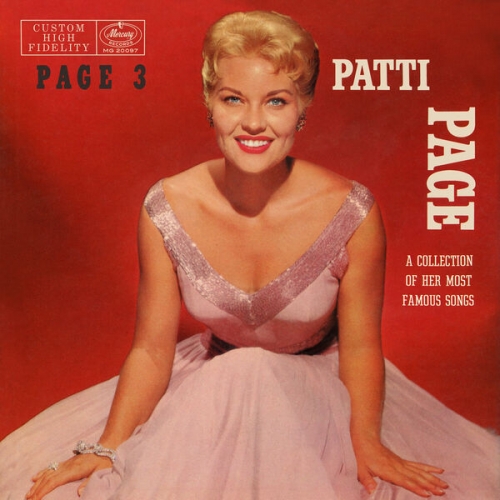
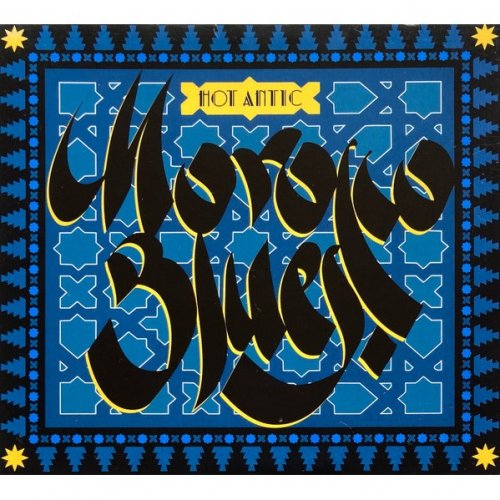


![Son Reis Project - Payment Plan (2025) [Hi-Res] Son Reis Project - Payment Plan (2025) [Hi-Res]](https://www.dibpic.com/uploads/posts/2026-01/1767703606_a0226987089_10.jpg)
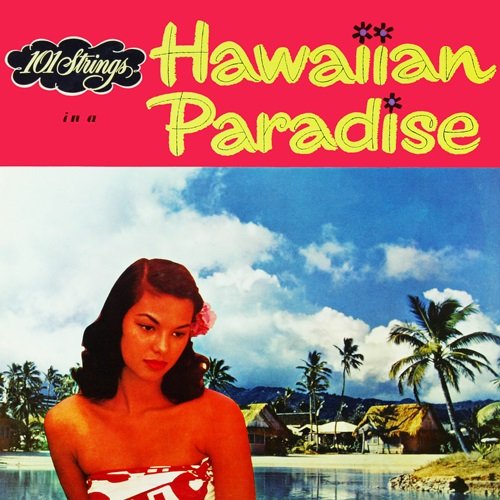
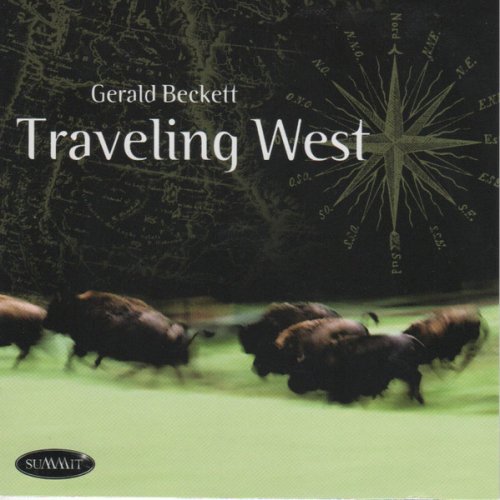
![The Mood Mosaic - Soul Allure (2026) [Hi-Res] The Mood Mosaic - Soul Allure (2026) [Hi-Res]](https://www.dibpic.com/uploads/posts/2026-01/1767930779_j8tt8dryg8d9a_600.jpg)